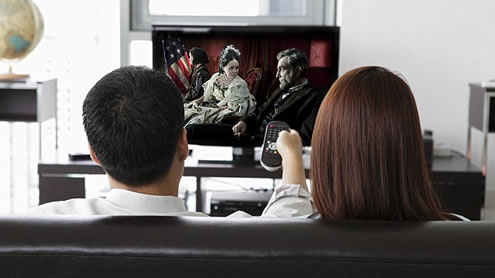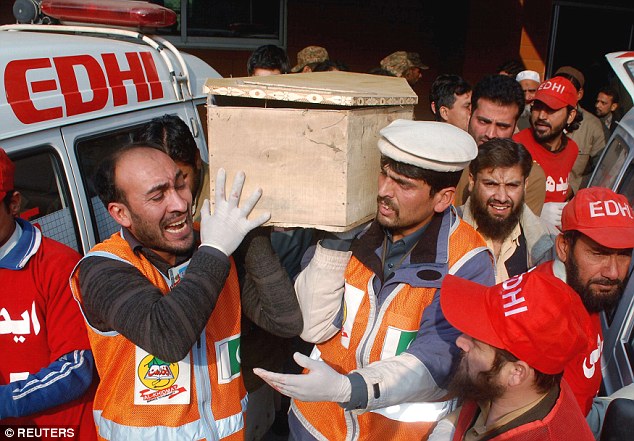- The switchover to a more sophisticated system for broadcasting digital terrestrial television (DTT) is scheduled for 2018
- Up to 30% of homes might need a new aerial to cope with the changes
Millions of people might have to buy new TV aerials and televisions to cope with an internet revolution designed to deliver ‘cutting edge’ services. Freeview TV and radio channels delivered to 20million homes are to be switched to another part of the broadcasting spectrum and many users are likely to need new equipment to receive them.
Steve Unger, chief technology officer of regulator Ofcom, said: ‘In the future it won’t be just mobiles and tablets connected to the internet; billions of things including cars, crops, coffee machines and cardiac monitors will also be connected, using tiny slivers of spectrum to get online.
‘This is likely to deliver large benefits to society; however there isn’t an unlimited supply of spectrum to meet this extraordinary demand.’ Ofcom has published a consultation document suggesting that up to 30 per cent of homes – 7.8million – might need a new aerial to cope with the changes.
Separately, the regulator is supporting a shift to a more sophisticated system for broadcasting digital terrestrial television (DTT), which would not be compatible with millions of TVs and set-top boxes that people use to watch Freeview. The switchover is scheduled for 2018, and the cost of fitting new aerials and buying new sets is likely to fall on ordinary families.
Details emerged yesterday after Ofcom held a briefing to promote the new services that will become available as a result of radical changes to the way the airwaves are shared between TV, radio, mobile broadband, wi-fi and other transmissions. Ofcom painted a picture of a brave new world made possible by exploiting the extra airwave spectrum taken away from TV broadcasts.
The regulator suggested that the ill will be given wearable sensors that monitor their health, with the results sent to GPs and hospitals via wi-fi links to the web. In theory, this would allow them to be at home rather than in a hospital bed. It also suggested sensors would be fitted to cars and linked to variable road speed signs to ensure traffic moves smoothly. Sensors might also be placed on ‘smart farms’ to measure water and nutrient levels in the soil. The results would be sent to a computer to advise on the need for irrigation or extra fertiliser.
Digital UK, for the broadcasters, said: ‘These proposals are at an early stage. It is vital that Freeview services are maintained and that customers’ interests are protected.’ – Dailymail












